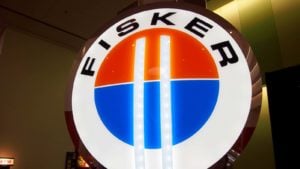Meme stocks comprise a wide spectrum of companies ranging from those sensible investors steer clear of, to firms with near-universal respect. This list of investment ideas sourced from here pulls primarily from the latter.
Several of the stocks listed below are absolute leaders in their respective industries, and among the most important firms globally. The rest have reasonable catalysts, and though somewhat risky, make sense overall. None are firms that have been co-opted by irrational investors with excess money hell-bent on propping up dead firms to spite the powers that be.
All in all, the moderate-risk stocks on this list reflect the overarching truth that meme stocks can’t be bucketed together. Not every meme stock is a laughing stock, and some retail investors’ ideas are as valid.
| AAPL | Apple | $173.50 |
| CMA | Comerica | $36.15 |
| JPM | JPMorgan Chase | $137.07 |
| DKNG | DraftKings | $24.18 |
| CVNA | Carvana | $11.30 |
| MO | Altria | $46.61 |
| FSR | Fisker | $6.62 |
Apple (AAPL)

First on this list of meme stocks to buy in 2023 is none other than Apple (NASDAQ:AAPL), the largest company in the world. Indeed, AAPL stock continues to be a winner, even as many have suspected it may be ready to tumble. The overarching notion is that a recession poses a major threat to consumer spending, directly threatening Apple and its expensive consumer products in the process.
Indeed, if you were to look at Apple’s top-line results, it might be tempting to conclude that that is the case currently. Q1 sales fell from $97.3 billion in 2022 to $94.83 billion through the first quarter of 2023. Net income fell, and earnings were flat.
But that cursory analysis misses the important details that tell a greater story. iPhone sales improved in Q1, and are by far the most important driver of revenue for Apple. Further, U.S. economic woes aren’t transferring globally based on iPhone sales. In fact, the Americas is the only region where an appreciable decline in iPhone sales occurred in Q1. The key takeaway is that Apple’s global-scale brand recognition is protecting the company from declines seen in its domestic base is suffering.
Comerica (CMA)

Comerica (NYSE:CMA) is my choice for investors who want to chase gains from the volatility that continues to affect mid-tier banks.
To understand my point, let’s juxtapose Comerica with Western Alliance Bancorp (NYSE:WAL), another popular regional bank meme stock. In both cases, meme stock investors have identified these stocks as having the potential to provide quick returns.
Both dropped recently, as regional bank fears reemerged. And both rebounded to a significant degree, just as quickly as those fears dissipated. That leaves further rebound potential on the table in both cases.
That said, I think Comerica is the best choice, simply because it’s performing better overall. Both banks saw deposits shrink following the regional banking collapse. And both banks have seen a rapid increase in interest income as rates have increased. However, Comerica has managed to increase its net income in Q1 by $135 million on a year-over-year basis, while Western Alliance Bancorp has seen its income decline by $97.9 million year-over-year. Thus, CMA stock is among the safer bets for those chasing quick returns on a banking rebound.
JPMorgan Chase (JPM)

JPMorgan Chase (NYSE:JPM) continues to look like the bank to invest in come what may. The largest U.S. bank’s earnings tell a story of the already strong getting even stronger. As we already know, JPMorgan has emerged as a winner from the banking crisis that has affected regional banks.
JPMorgan swooped in, playing the role of big brother, and ultimately saving the day by injecting capital into the banking system. Of course, JPMorgan helped itself along the way, using the crisis to acquire the most desirable parts of First Republic while playing the role of banking savior in the process. It was a win-win situation, if ever there was one.
JPMorgan sifted through the rubble at First Republic selectively acquiring the most attractive branches within the company. Additionally, the bank acquired affluent clientele in attractive markets, and appears focused on turning those branches into JPMorgan wealth centers.
It’s a fine strategy for a company that saw revenues increase by 25% in the first quarter, alongside a spike in net income of 52% in the same period.
DraftKings (DKNG)

Online gambling firm DraftKings (NASDAQ:DKNG) just got a lot more attractive following its first-quarter earnings release.
DraftKings reported $770 million in Q1 revenues. That equated to an 85% year-over-year increase, compared to the $417 million in Q1 2022. The results were impressive on their own. However, they also represented an impressive beat on the bottom line. The company was able to narrow its losses to 51 cents, which was much better than the loss of 70 cents analysts had been expecting for the quarter.
These strong results represent a big leap forward for the company, bringing it much closer to breakeven. Management increased its EBITDA midpoint from -$400 million to -$315 million following the positive news.
Further, Draftkings now anticipates that the company will now record $190 million more in midpoint revenues than it had previously expected.
The company attracted more paying customers, while also getting more revenue out of its existing customer base. This winning combination has the company soaring higher, and could lead to more gains down the road.
Carvana (CVNA)

Carvana (NYSE:CVNA) continues to sell fewer and fewer vehicles. However, I think this company is among the meme stocks that continues to get stronger in 2023. Carvana sold under 80,000 vehicles this quarter, down from more than 105,000 during the same period a year ago.
In general, that would signal trouble. But Carvana’s issue is less about growth than it is about an unhealthy business model and losses. What matters is the company’s ability to narrow its losses and find ways to drive efficiency from within to achieve that goal.
Indeed, Carvana’s progress toward that goal is very evident in its recent earnings results. The company’s losses narrowed from $506 million in the first quarter of 2022 to $286 million during the same quarter this year. Adjusted EBITDA figures are the real star here though, as Carvana’s $24 million loss this quarter was a huge improvement over the $386 million loss 12 months earlier.
So what is Carvana’s secret? It’s become much more efficient in buying and selling vehicles. Carvana profited $4,303 from each vehicle it sold this quarter, whereas that figure was $2,833 in Q1 2022.
Altria (MO)

Altria (NYSE:MO) continues to strategically move toward its goals while rewarding stockholders handsomely. Like all big tobacco firms, Altria has suffered a sales decline, as cigarette smoking rates have dropped. Thus, the company has had to pivot its business to better-address changing attitudes about nicotine and tobacco in the process. That has resulted in a number of high-growth opportunities outside of cigarettes, including various smoke-free tobacco products.
Outside of its business shift, MO stock is also a dividend juggernaut. Currently, Altria pays a dividend yielding 8.1%. That’s a high-yield dividend, which generally equates to high risk and the potential for interrupted payments. However, this seems unlikely in the case of Altria, which hasn’t reduced its dividend since 1970.
The company maintains a high payout ratio, but it’s a strategy meant to keep investors engaged with the company as it pivots. That’s why the company has pledged to target mid-single-digit dividend increases through 2030. Altria remains one of the safest high-yield stocks available to investors right now.
Fisker (FSR)

Rounding out this list of meme stocks to buy is Fisker (NYSE:FSR), another firm that is executing a strategy to grow. The company went public via a SPAC deal in the summer of 2020, at the height of SPAC EV mania. But instead of attempting to build manufacturing operations with the infusion of cash, it adopted a different strategy entirely.
Magna International (NYSE:MGA) was outsourced to build Fisker’s debut Ocean SUV. The Austrian firm has a strong track record as an original equipment manufacturer in the automotive industry. Fisker focused on marketing, while Magna made sure the Ocean would be of higher quality than many other SPAC EV products.
Fisker met its goal to begin November 2022 production of the Ocean SUV. That led to 63,000 orders and the expected production of 42,400 vehicles this year. Fisker just delivered the first of those vehicles to a customer in Denmark. It’s a great example of a business following a reasonable plan while so many other SPAC EV firms have flopped massively.
On the date of publication, Alex Sirois did not have (either directly or indirectly) any positions in the securities mentioned in this article. The opinions expressed in this article are those of the writer, subject to the InvestorPlace.com Publishing Guidelines.
